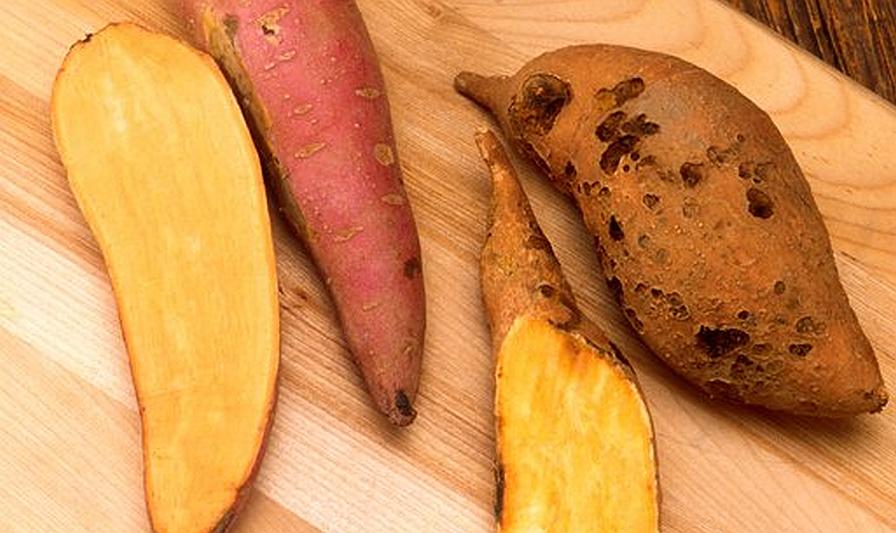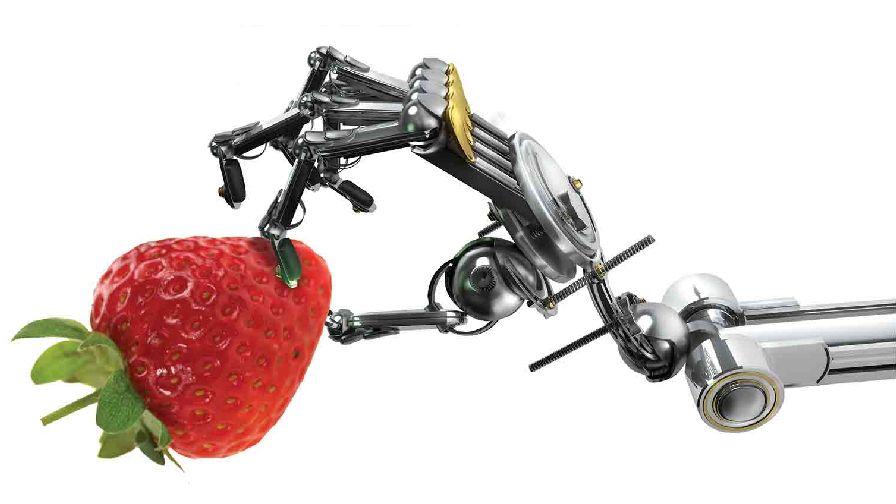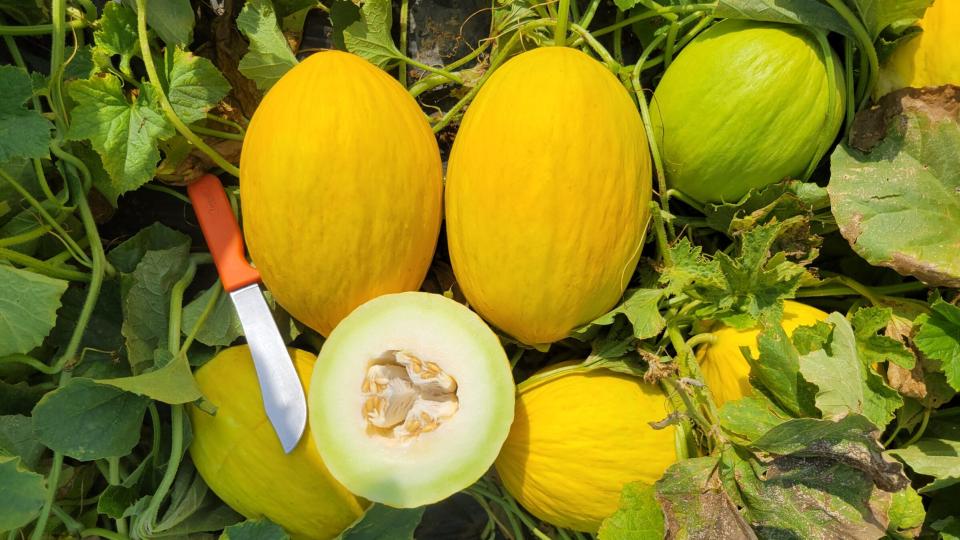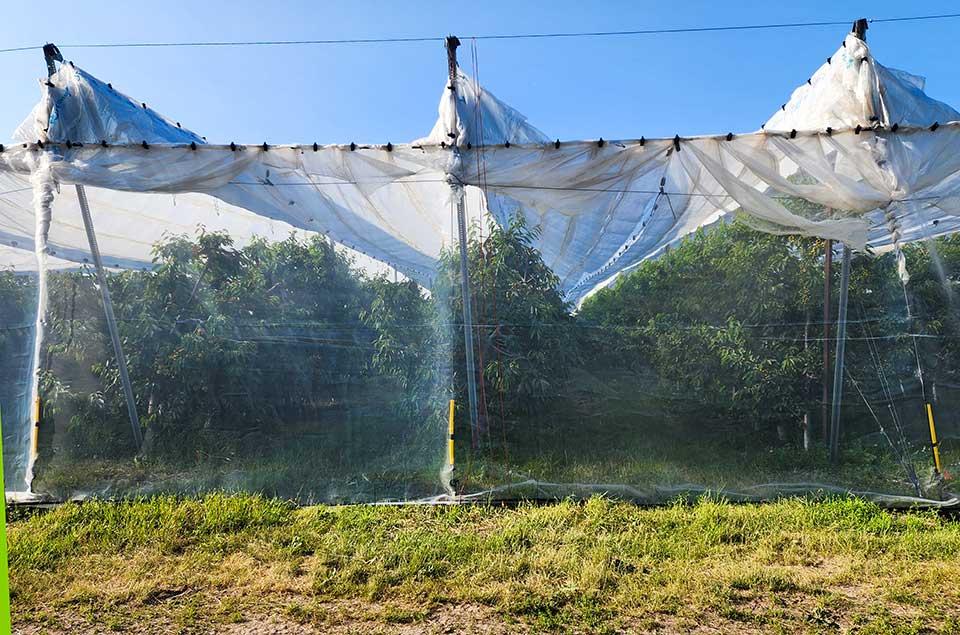Research Work Pays Off in Quest To Build a Better Sweet Potato

An attractive sweet potato cultivar Ruddy (left) is sweet and moist and highly insect resistant unlike the widely grown and popular U.S. cultivar Beauregard. Photo by Scott Bauer
Researchers with USDA’s Agricultural Research Service (ARS) and Clemson University are at work developing new, insect-resistant, and weed-tolerant sweet potato germplasm that will improve weed management and sustainability for the unique vegetable crop.
So far, researchers have bred and selected fast-growing sweet potato clones. They identified two sweet potato clones that had reduced weeds, exhibited broad insect resistance, and produced higher yields.
“Weed management is consistently ranked among the top priorities of the U.S. sweet potato industry,” says Phillip Wadl, a Research Geneticist at ARS’s U.S. Vegetable Laboratory in Charleston, SC. “Breeding sweet potatoes that are competitive with weeds offers a practical solution, because many widely grown cultivars tend to grow long vines in a sprawling manner, whereas sweet potatoes with fast-growing upright and compact plant architecture can outcompete weeds.”
According to Wadl, spreading vine growth allows weeds to establish in areas where the plant canopy has not completely shaded the soil surface and can lead to the quick establishment of weeds. And failure to control weeds will likely result in losses.
“Additionally,” Wadl adds, “the widely grown sweet potato cultivars in the U.S. have low levels of resistance to soil-dwelling insect pests. For sustainable management of weeds and insect pests, combining insect resistance with a vigorous upright growth habit is necessary to ‘stack’ traits and develop varieties that exhibit erect, upright plant habit and resistance to insect pests.”
Researchers also are taking another approach by looking at how other vining crops get upright plant growth.
“Compact bunch- or bush-type varieties have been developed for other traditionally vining crops such as bean, cucumber, winter squash, and watermelon,” Wadl says. “For sweet potato, a small number of bush-type cultivars already exist but are not resistant to insect pests.”
Wadl and his fellow researchers plan to continue ongoing research to develop new insect-resistant germplasm in collaboration with Dr. Matthew Cutulle’s vegetable weed science program at Clemson University’s Coastal Research and Education Center.
“Reducing the critical weed-free period in a crop or the amount of time that a crop must remain weed-free to avoid yield loss is critical to the profitability of growers,” Cutulle says. “The sweet potato clones that are generated out of Dr. Wadl’s program have improved plant architecture that decreases the critical weed-free period and increases the competitiveness of sweet potato versus weeds.”
Check out more detailed research specs recently published in the journal Weed Technology.









